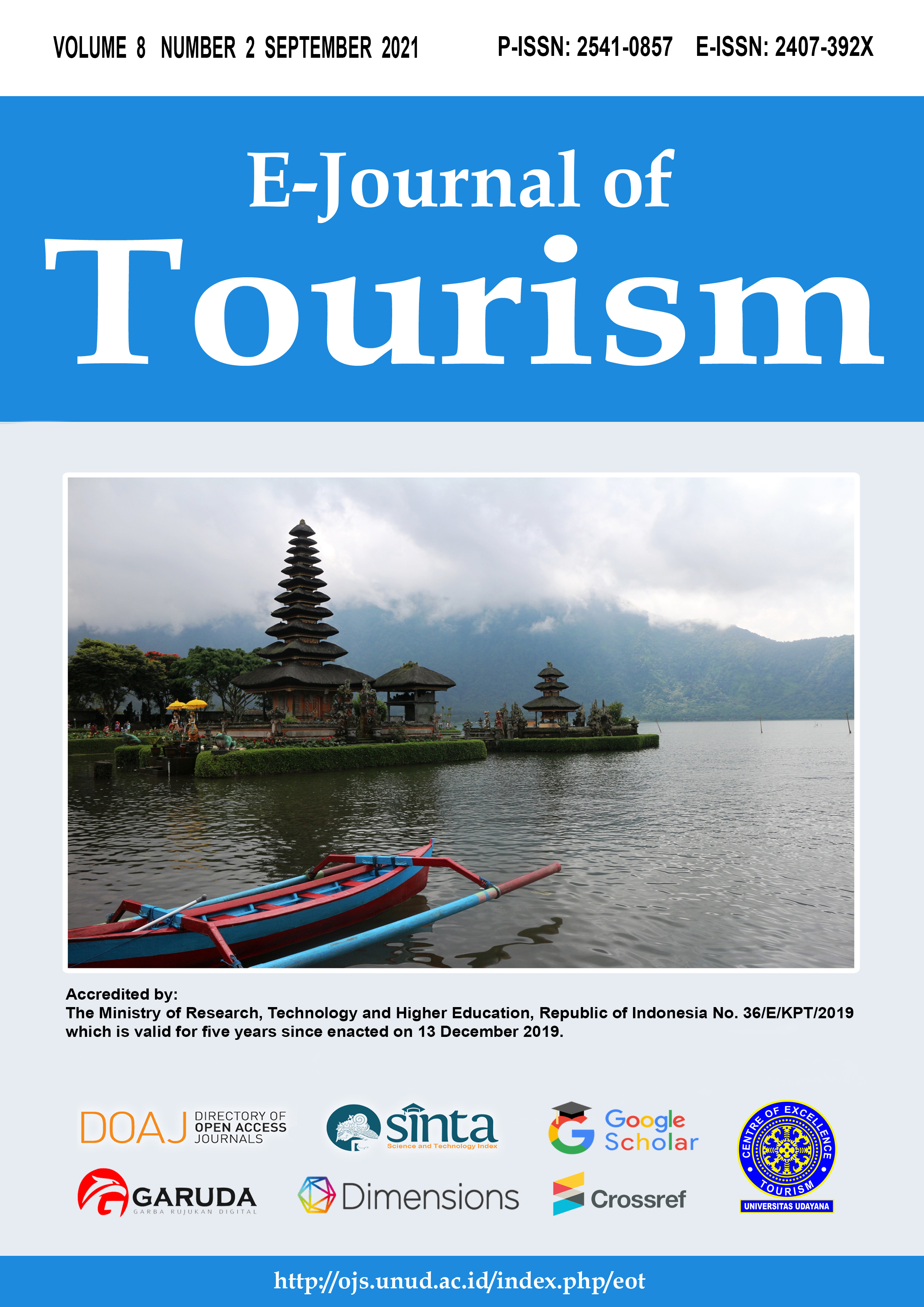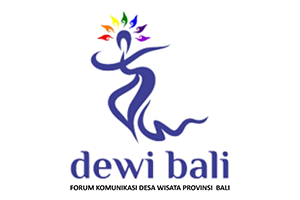Evaluation of CHSE-Based Homestay Business Management in Ubud Tourism Area
Abstract
The Bali Provincial Government together with the Indonesian Ministry of Tourism and Creative Economy in the recovery of tourism in the new normal era, by implementing the certification of cleanliness, health, safety and environmental sustainability also known as CHSE in the management of tourism business including homestay business in Ubud Tourism Area. This research aims to evaluate homestay business management during Covid-19 pandemic and to evaluate tourism recovery efforts in Ubud Tourism Area. The research was conducted by observing 30 homestays in the Ubud Tourism Area. Data analysis technique was using qualitative and quantitative descriptive analysis. The results showed homestay business management in the Ubud Tourism Area has already a good implementation of CHSE management. Tourism recovery efforts in Ubud Tourism Area were ‘We Love Bali’ campaign, the establishment of a green zone and socialization for strengthening the destination organization management-governance destination that have been well implemented.
Downloads
References
Ritchie, Brent. 2004. Chaos, Crises and Disasters: A Strategic Approach to Crisis Management in the Tourism Industry. Tourism Management.
Sugiarti, Rini. 2012. Manajemen Krisis Candi Borobudur (Studi Deskriptif Kualitatif pada PT. Taman Wisata Candi Borobudur, Prambanan, dan Ratu Boko dalam Pelestarian World Heritage Pasca Erupsi Merapi). Fakultas Ilmu Sosial dan Humaniora. Universitas Islam Negeri Sunan Kalijaga Yogyakarta
Suteja, Mertha. 2012. Tri Hita Karana and World Peace, Bali Hinduism Philosophy of Life. Surabaya: Paramita.
Terry, George. 2000. Dasar‐dasar Manajemen, Jakarta: Bumi Aksara,2000.
Merdeka.com. 2020. “Pariwisata Terpukul Pandemi Covid-19, Bali Kehilangan Devisa Rp 9,7 Triliun per Bulan”. Sumber: https://www.merdeka.com/uang/pariwisata-terpukul-pandemi-covid-19-bali-kehilangan-devisa-rp97-triliun-per-bulan.html. Diakses pada 19 Juni 2021.

This work is licensed under a Creative Commons Attribution 4.0 International License.
The copyright of the received article shall be assigned to the journal as the publisher of the journal. The intended copyright includes the right to publish the article in various forms (including reprints). The journal maintains the publishing rights to the published articles.




















